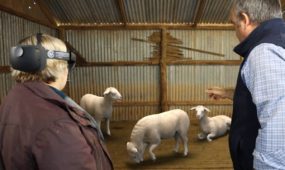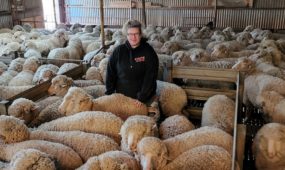Free-range egg buyers put quality ahead of cruelty
Primary Industries
THE decision to buy free-range eggs is more likely to be based on a perception the eggs are more nutritious rather than concern for the welfare of the chickens that laid them, according to new research.

Sign up to receive notifications about new stories in this category.
Thank you for subscribing to story notifications.
A study by researchers from the University of Adelaide’s Food Values Research Group in South Australia has found that taste and quality of eggs rank high in people's considerations for purchasing eggs with ethical production claims.
The researchers conducted interviews at shopping malls and ran focus groups to find out about their food purchasing habits to better understand the reasons why people make ethical food choices.
“People who said they bought free-range eggs readily told us that they thought the eggs were of better quality, more nutritious, and safer to eat,” said lead author Dr Heather Bray.
“Consumers saw free-range as more ‘natural’ for the chickens – so the eggs were ‘naturally’ better.
“These findings are in many ways unexpected, because we thought that the welfare of chickens would be the first reason people would give for purchasing free-range eggs.”
Respondents did not emphasise welfare reasons as critical for their purchase of free-range eggs, despite some participants describing caged-egg production as “cruel”. Instead, participants felt that the free-range chickens were “happier”, ate a more “natural” diet, and thus produced a better quality of product.
The study, published today in the international journal Anthrozoös, also revealed high levels of awareness among participants of caged-egg production compared with other types of animal farming.
Participants were more likely to buy free-range or cage-free eggs compared with meat that is marketed as being produced ethically, in part because the price difference is much smaller in eggs.
“Our research suggests that consumers are more likely to purchase a food product if it's both ‘ethical’ and viewed as being of better quality, rather than for ethical reasons alone,” Dr Bray said.
“Consumers think about animal welfare in a much broader context – they believe that better welfare is connected to a better product. Taste and quality are strong motivations for purchasing and may be part of the reason why people are prepared to pay a higher price.
“These findings help us to better understand the complex issues involved in making ethical food choices.”
South Australia’s capital Adelaide has three long-standing public universities, Flinders University, University of South Australia and the University of Adelaide, each of which are consistently rated highly in the international higher education rankings.
Jump to next article



